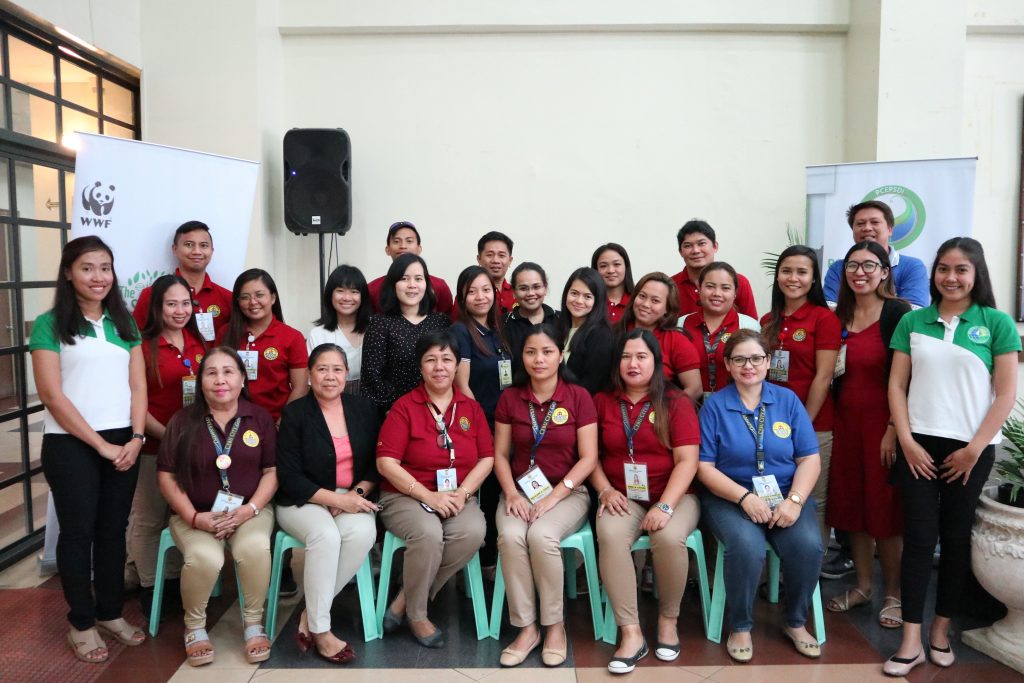
The Sustainable Diner project team of WWF-Philippines and PCEPSDI with representatives from the Cebu City LGU’s various offices: Tourism; Health; Planning; Public Information; Budget; Agriculture; Environment and Natural Resources; and Resource Management and Development Center. Photo © Gabriel Villalon / WWF-Philippines
World Wide Fund for Nature (WWF) Philippines’ The Sustainable Diner: A Key Ingredient for Sustainable Tourism project conducted a policy planning workshop in partnership with the Philippine Center for Environmental Protection and Sustainable Development, Inc. (PCEPSDI) and the Cebu City Local Government Unit (LGU) at the Social Hall of the Cebu City Hall last March 4, 2019. The workshop was attended by representatives from the LGU’s Resource Management and Development Center and the Tourism; Health; Planning; Public Information; Budget; Agriculture; and Environment and Natural Resources offices. The goal of the workshop was to validate the action recommendations and strategies derived from the Action Planning Workshop conducted last year in order to assist the LGU in integrating the Sustainable Consumption and Production (SCP) concept into their policies and plans and identifying key departments or units instrumental in handling each recommended strategic action.
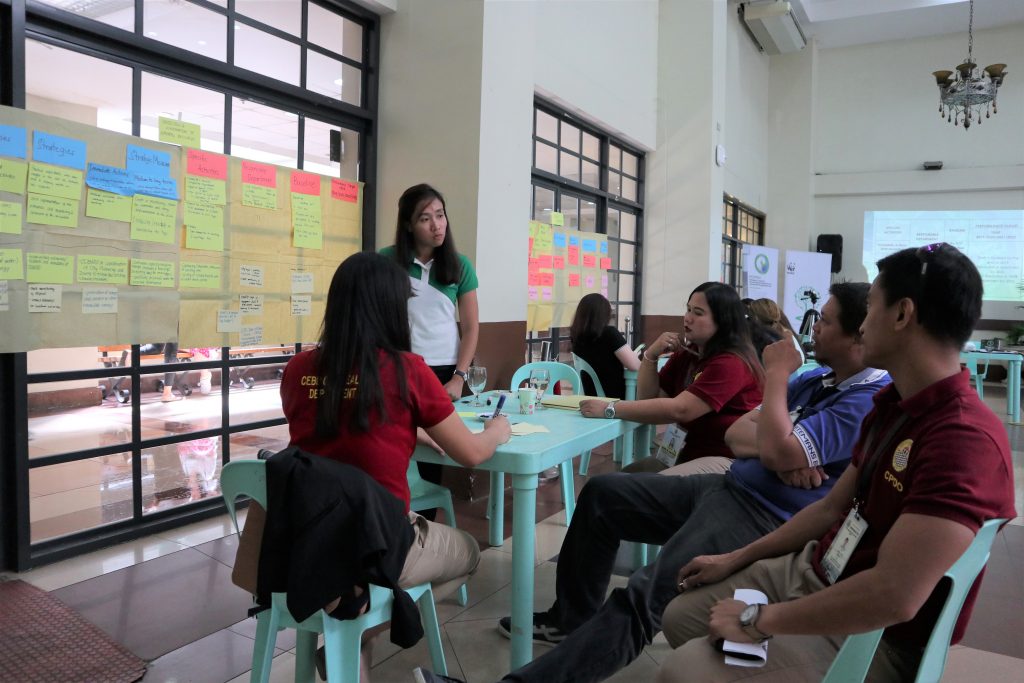
Ms. Diana Sadili, PCEPSDI’s Project Officer for The Sustainable Diner project, facilitating the exchange of recommendations amongst representatives from the Cebu City LGU’s different offices. Photo © Gabriel Villalon / WWF-Philippines
Ms. Diana Sadili, PCEPSDI’s Project Officer for The Sustainable Diner project, set the expectations for the policy planning workshop by giving a quick run-through on the project action recommendations and strategies, consolidated from the inputs gathered from the Action Planning Workshop held last September 24-25, 2018. The Action Planning Workshop was meant to define the medium- and long-term strategic goals of specific national and local government units on the implementation of SCP in the food service industry, and to integrate SCP principles into local and national policies and plans. The gathered recommendations and strategies were classified under four (4) major themes: the creation of an SCP council; the institutionalization and harmonization of SCP concepts; the adoption and implementation of SCP practices and policies; and the development of a support system for the food service industry’s transition to SCP compliance.
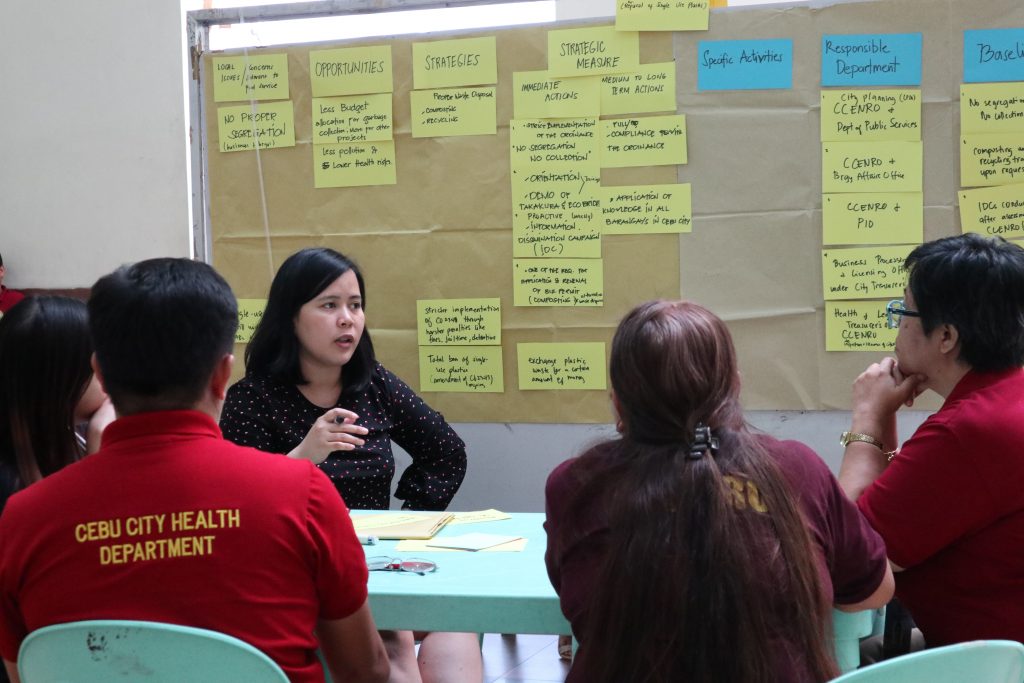
Ms. Liezl Stuart Del Rosario, The Sustainable Diner project’s Policy Specialist, facilitating the workshop on solid waste management, particularly on the management of single-use plastics. Photo © Gabriel Villalon / WWF-Philippines
With Cebu City being situated in an island that is surrounded by rich marine biodiversity and blessed with different forms of natural resources, environmental protection became a very important theme during the policy planning workshop. Giving a specific importance to this lens, the presented action recommendations and strategies were then assessed by the Cebu City LGU representatives, particularly on how these can be improved and implemented through local policy-making and governance. During the workshop proper, the Cebu City LGU representatives were able to localize the consolidated challenges and opportunities shared during the Action Planning Workshop by stakeholders from the food service industry, the academe, and other civil society organizations, with the present challenges they are facing in the different aspects of local governance. The action recommendations and strategies were then further refined, and collectively, suggestions were made on the possible delegation of the roles and responsibilities to the corresponding LGU offices.
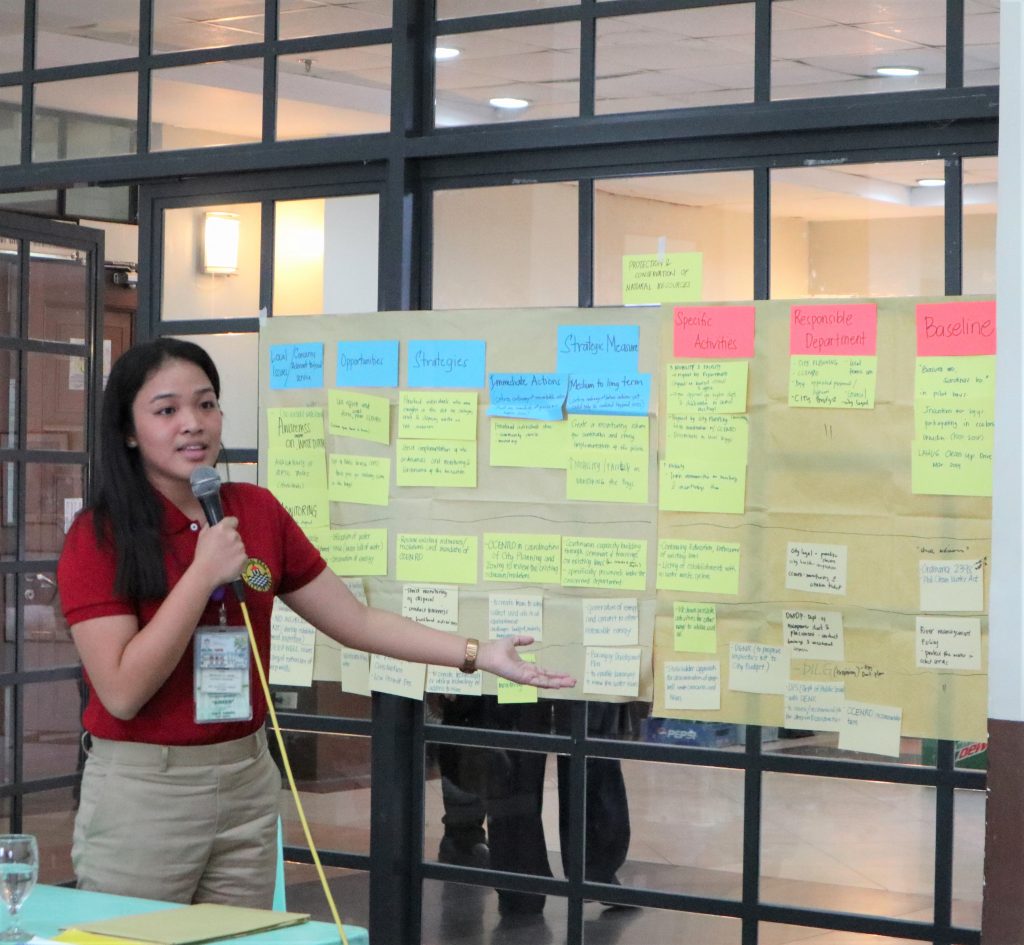
Ms. Aireen Monica Guzman, Sanitation Inspector I from the Cebu City Health Department, presenting the discussion highlights concerning the protection of natural resources in Cebu City. Photo © Gabriel Villalon / WWF-Philippines
The outcome of the policy planning workshop will be further synthesized until a revised batch of action recommendations and strategies, specifically for Cebu City, can be presented and implemented with the help of the LGU’s different offices. Having concluded the policy planning workshops for Quezon City and Cebu City, the same kind of workshop will be conducted in Tagaytay City in the coming month.
The Sustainable Diner project, under WWF-Philippines’ Sustainable Consumption and Production, is part of the International Climate Initiative (IKI). The Federal Ministry for the Environment, Nature Conservation, and Nuclear Safety (BMU) supports this initiative on the basis of a decision adopted by the German Bundestag.
